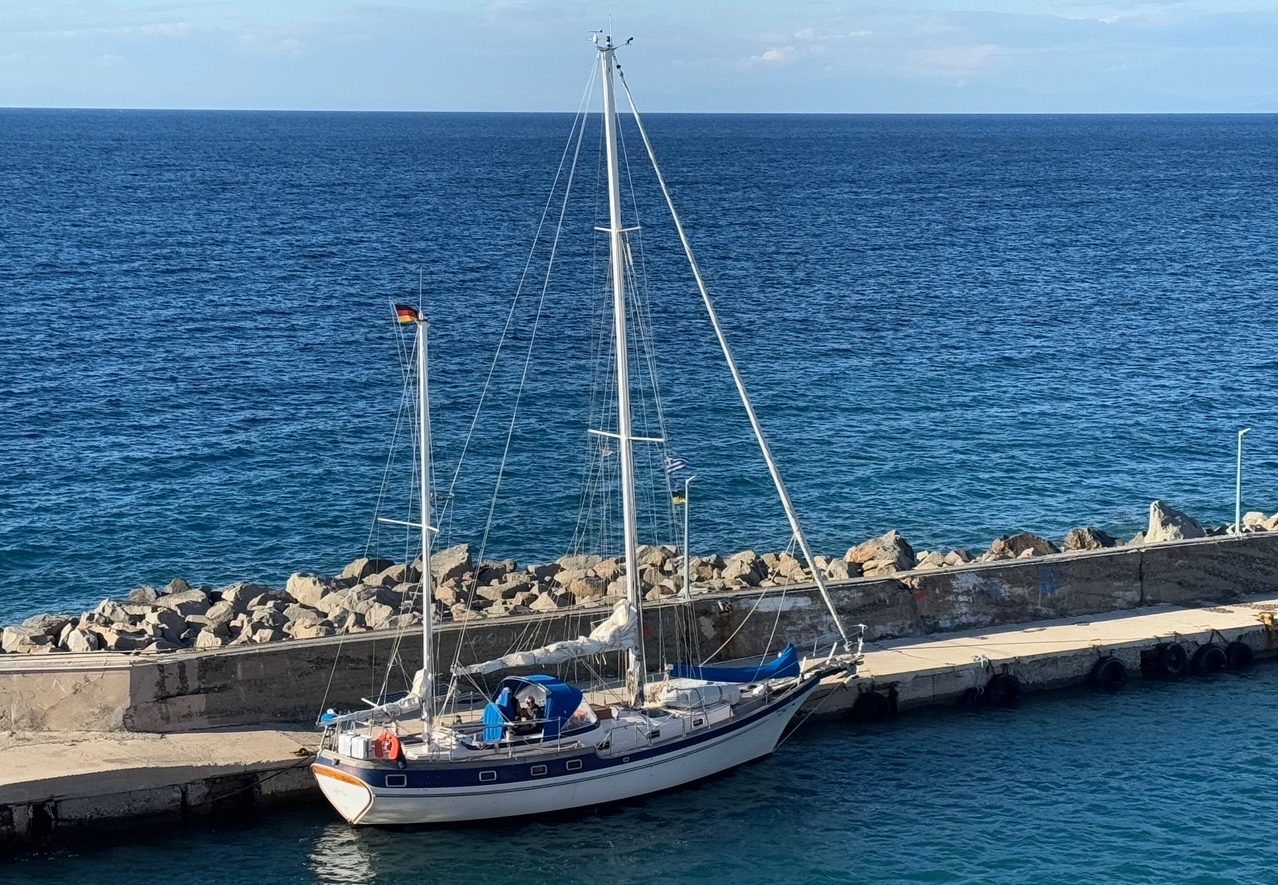
... for our government! For years we have been travelling with our boat in Greece, moving along the EU's external border. We have seen Greek and Turkish patrol boats preventing boats carrying refugees from entering the EU. We have seen stolen sailing yachts in which refugees are transported by smugglers and abandoned just off the Greek coast. Such boats are then often completely abandoned and when the Coastguard discovers them, they are towed to the nearest harbour and put on a chain. In Kalamata, we saw refugees, who were housed in tents and were probably deported again. And in Leros, we could see the large, brightly lit refugee camp from the marina, which looked like a prison. Yes, we are on the EU's external border and are wondering what the future holds for EU refugee policy.
It is clear that countries such as Greece and Italy are particularly challenged, as many refugees are arriving here. And they receive little support from countries such as Germany to deal with the people, who have not made the journey from their homeland lightly, in a reasonably dignified manner. The Greek Coastguard is known for its brutal approach.
What should the EU's immigration and asylum policy look like in the long term? Only together can there be effective solutions, which, however, must not be aimed at rejection but rather at integration. However, our current government is doing exactly the opposite: turning people away at the German border and not seriously working with the other EU states on a humane solution that is acceptable to all. Where is the long-term goal? We cannot recognise it and are ashamed of our government. How is a Mr Dobrindt any different from a Donald Trump who flouts the law?
There has always been displacement, flight and immigration. Reports on the eastern Mediterranean have provided detailed information on this since ancient times. The question is how we deal with it today in a rich country like Germany.


